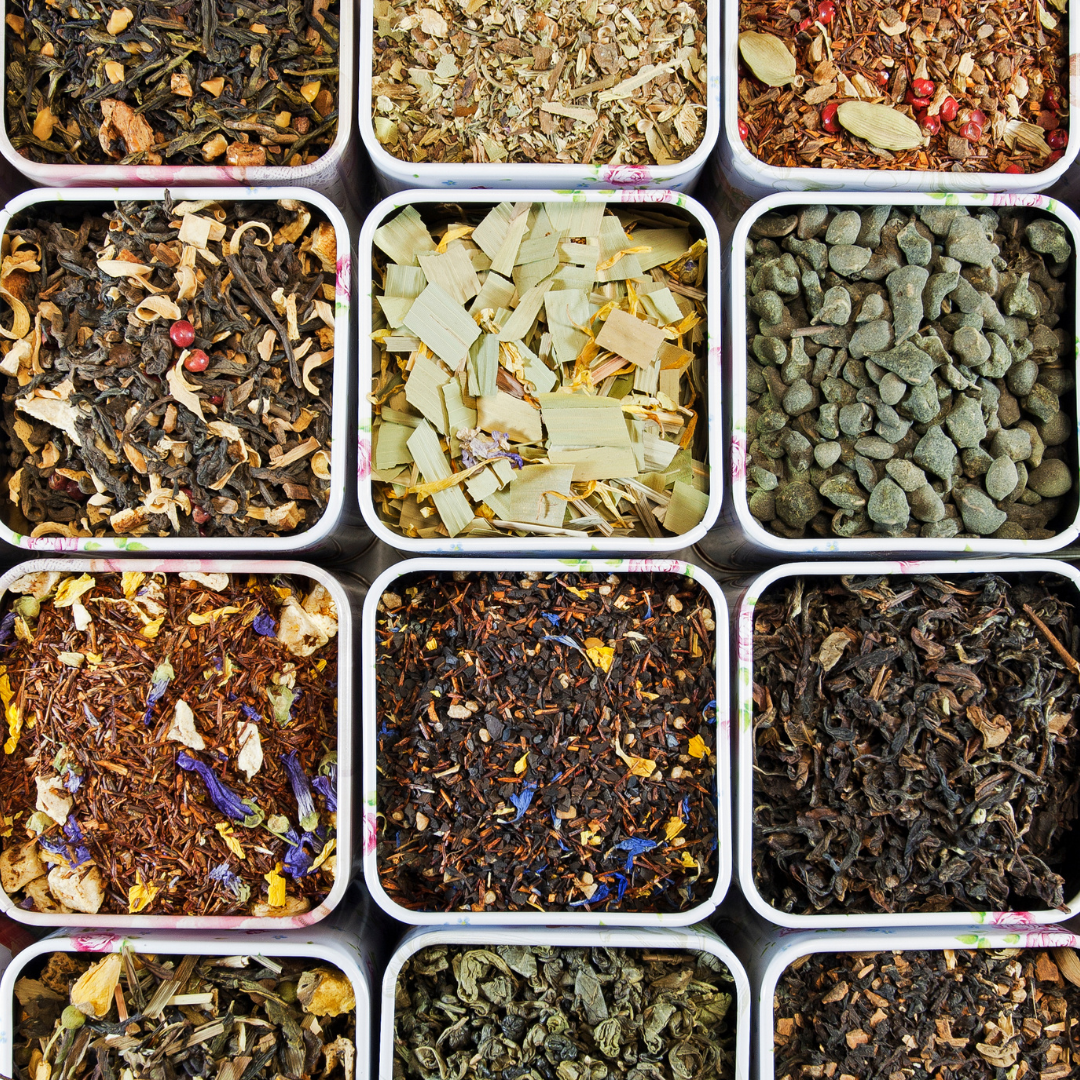
How to Store Your Loose Leaf Tea
Share
So, you have upgraded your tea and you are now starting your loose leaf tea journey. Now you have realised you have a bit of a problem. You need to learn how to store it and how long you will be able to keep it for.
We are going to give you what we think, are the most important things to know when it comes to looking after your loose leaf tea, to ensure it lasts as long as possible and keeps that amazing taste that it is known for.
When you buy loose leaf tea, it normally comes in either a tin or a resealable bag of some description. There is nothing wrong with keeping your tea in the packaging that that it came in. You will however, still need to understand what will cause your tea to lose its taste and potentially "go bad". To do this, you will need to follow a couple of simple rules, covered below.
Your tea will normally come with a best before date, we know that sometimes this can be confusing. One common mistake is that people will confuse used by with best before, resulting in throwing out something that it perfectly safe to consume.
We will start by covering of the difference between used by and best before!

Best Before & Use By, What’s The Difference?
Best before is exactly as it sounds, the product you have purchased, in this case, loose leaf tea, will taste its best before the date on the label. However, it is still safe to consume it beyond this date.
Used by on the other hand means the product is to be disposed of once the date has passed as it has the potential to cause illness.
Tea comes with a best before due to the nature of it, it can be stored for long periods of time without any real issue as long as you make sure you are storing it correctly.

So, How Should I Store my Loose Leaf Tea?
When it comes to loose leaf tea, there are some things that you can do to extend the life of that wonderful flavour for as long as possible. But first, you need to understand what could cause your loose leaf tea to lose its flavour.
The main things to concentrate on when it comes to increasing the life of your tea can be slotted into 3 topics.
- Allowing your tea to be exposed to heat will increase the oxidization process and in turn speed up the time it takes for the leaves to lose their flavour and go stale.
- Exposing your tea to moisture will destroy it, if your tea leaves take on moisture, they will go mouldy and then need to be disposed of.
- Exposing your tea to natural light is something that needs to be avoided, this will make your tea go stale much faster than if stored in the dark.
This should be obvious but please do not try to recover mouldy tea, it should be disposed of.
You need to make sure that these things are avoided to improve the life of your lovely new tea leaves.

Storage Temperatures Have an Effect.
Exposing your wonderful tea leaves to heat will result in them loosing their flavour, drying out and going stale. This will make your tea taste flat or potentially bitter depending on which leaves you are using.
You need to try and keep your leaves as cool as possible. Loose leaf tea can be kept in the fridge, it can even be kept in the freezer but there are some caveats to this.
You will need to make sure that if you keep leaves in the fridge they are kept dry. This is not always easy due to the way fridges work, they will normally have a lot of moisture in the air. If your tea takes on moisture from the air then it will effect the taste. This will also potentially result in mould growth.
The same applies to the freezer but you also have to watch out for freezer burn and this will make your tea undrinkable and let's face it, nobody wants that!.
Can You Put It In A Container?
There are some considerations to make when storing your tea in a container. As long as you store your tea inline with them you should be ok.
Your container will need to be airtight, this will help keep your leaves dry and prevent them from taking on any moisture from the air. Try to avoid keeping your leaves in a transparent container if at all possible. Transparent containers will allow the light through and this will effect the taste of your tea over time.
Metal tins are generally considered the best way to store your leaves, you can use glass jars but if you are then try and use coloured glass to reduce the amount of light exposure to the leaves. Alternatively if using clear glass store it somewhere that it will not be exposed to light.

Keep it dry.
We touched on this earlier but it is worthy of its own section. Moisture is the tea leaf killer! The only time your loose leaf tea should be anyway near moisture is when your about to pour hot water over it.
Moisture will destroy your tea, keep it dry at all costs. Tea that has taken on moisture can begin to grow mould and at this point its only any good for decorating the bin.
If you are struggling with moisture, there are a couple of things you can do to help. Baking soda can be pleased in a bowl and stored next to your tea. This will draw moisture to the baking soda rather than your precious leaves. You could even get a dehumidifier if you have serious humidity issues due to your location but ultimately, airtight containers should be sufficient.

Can I Drink “Expired Tea Leaves”?
If you have been storing your tea correctly it should last well over 12 months, but let's be honest, you are likely buying it in bulk if you're storing it for this long. A 250g back of tea should last you 4 weeks if your drink 2 cups of tea a day.
We believe this is the best way to consume your tea, it means that it is easy to store and will always be as fresh as possible. It reduces the risk of moisture damage and the effect light can have on your leaves but means you are not always having to order fresh leaves and wait for them to turn up.

Final thoughts
When it comes to loose tea storage and consumption you can follow a few simple rules. Only buy what you need, the more you have the longer it will take you to use it. This means you will need to store it for longer increasing the potential for it to loose it’s flavour.
Additionally, if you keep it dry, cool and away from the light you should be good for up to and beyond 12 months.
